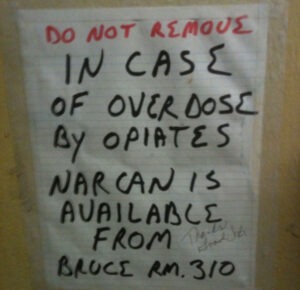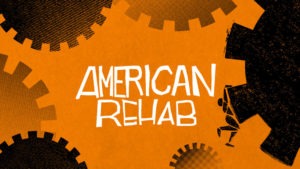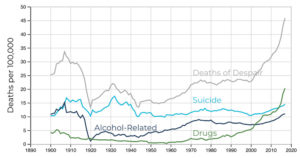
March 9, 2015; Boston Globe
Massachusetts is in the midst of an opioid epidemic, with 978 deaths from overdoses recorded last year, a 48 percent increase over the previous year. And the trajectory is going nowhere good, with 114 suspected opioid-related deaths in December. In the midst of this horrible reality, two-thirds of the beds for women seeking treatment were eliminated overnight in the October closing of the Long Island Bridge.
We have reported on this previously. Boston Harbor’s Long Island had long been home to a number of programs serving 700 homeless people and women with substance issues. When the bridge was condemned, the only access to it was closed overnight. According to the Boston Globe, 1,800 people have gone without care since mid-October. (It’s worth reminding readers that we have also had one of the coldest and snowiest winters ever recorded in Massachusetts.)
But beyond the human toll, there have been terrible financial costs to Victory Programs and Bay Cove Human Services. Both of their centers each filed an insurance claim on its “business interruption” insurance policy, but their claims were rejected by Philadelphia Insurance Cos., saying wear and tear on the bridge was not covered.
“We’ve lost our entire investment on Long Island without any ability to recoup it,” said Jonathan Scott, chief executive of Victory Programs, which ran the 47-bed Joelyn’s Family Home. “Because the bridge hadn’t fallen into the sea or our building didn’t burn down in a fire, that closed the door” on any claim.
Sign up for our free newsletters
Subscribe to NPQ's newsletters to have our top stories delivered directly to your inbox.
By signing up, you agree to our privacy policy and terms of use, and to receive messages from NPQ and our partners.
“We’re certainly frustrated,” said Bill Sprague, chief executive of Bay Cove, which ran the Andrew House detox center on Long Island. Bay Cove paid $38,763 last year for business interruption insurance. “The city closing the only way you can get to your business would seem to be the reason you buy that stuff,” he said. Massachusetts Attorney General Maura Healey may challenge the claim denials, but all of that will take time.
Victory Programs spent $2.5 million to build out Joelyn’s eight years ago. Not only is it unable to serve many women in need, but it is losing almost $60,000 a month in program revenue yet must still pay the $800,000 loan on the building, although the bank is making some effort to be reasonable.
“It’s really, really staggering,” Scott said. “At a time when we should be growing, in the middle of a heroin epidemic, I’m just trying to get stable.” The group has also had to get new property insurance at four times the prior cost because the site is unoccupied.
In light of all of this it is unsurprising that the Boston Foundation, a funder of Victory Programs, stepped in with an emergency grant. “We’ve been very distressed at the travail and hardship that the bridge closure led to for some of our most vulnerable citizens,” said Paul S. Grogan, president of the Boston Foundation, which has more than a billion dollars in assets. “We’re confident that the restoration of this program will bring help to those most in need in our community.”
We are, however, more than a little surprised at the limited size of the donation relative to the losses being taken by such a critical service—which, unless we are missing something, are likely to add up to seven figures in the end—and the fact that it is said to be the first major financial aid Victory House has received since the programs were shuttered. “It’s an emergency, one-time grant,” Scott said. “We have asked lots of our donors and supporters, and told them that we need heroes and we need leadership.” But to us, it appears this may be a case of grantmakers in this philanthropy-rich area not understanding what it really takes to keep a lifesaving institution afloat even in good times, but especially when a perfect storm of disaster strikes.—Ruth McCambridge













